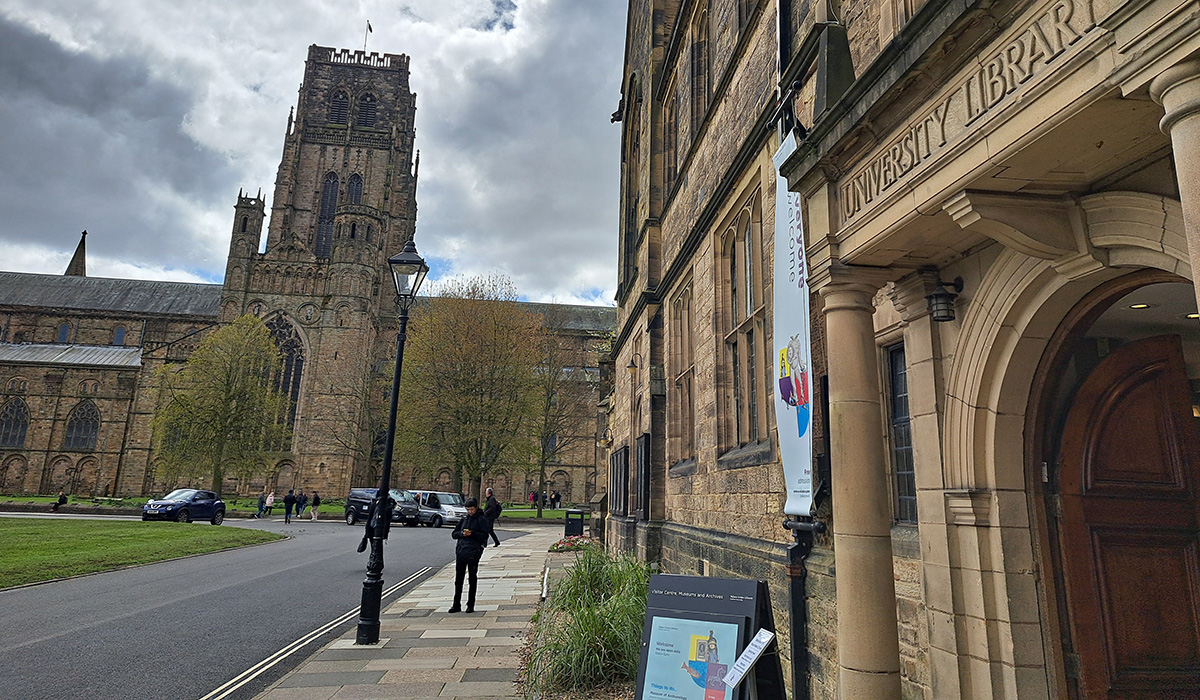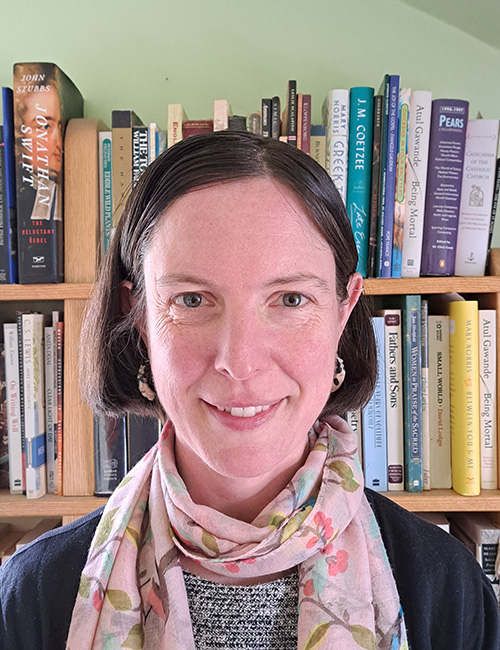
During the spring 2024 semester, English Prof. Joanne Myers is researching Catholic archival materials in England with a prestigious grant from the highly competitive Fulbright U.S. Scholar Program, which allows United States citizens to teach, research, and pursue professional projects around the world.
“A Fulbright is a special honor,” said Myers. “Not only is the quality and importance of your research being recognized, but you’re being asked to represent the U.S. abroad.”
With the scholarly research grant, she is advancing her project entitled “Devotional Authorship and the Manuscript Culture of the English Poor Clares in Exile,” which is tailored to the unique collections at Durham University’s Palace Green Library shared by nearby religious congregations. Specifically, she is researching the Poor Clares Darlington collection, which was given to Durham University in 2007 by members of a Franciscan order.

During her time as a Fulbright scholar, Myers is reviewing devotional writings, like prayer books, handwritten by English nuns living in French convents during the post-Reformation period in the 17th and 18th centuries. Because Roman Catholicism was outlawed in England during this time, women fled to pursue religious vocations abroad.
“I got interested in these materials because I was surprised—as an 18th-century scholar—that people were still handwriting books in the 1700s!” Myers said. “That drew me into lots of recent work that’s been done on the writings by English nuns in the early modern period.”
Myers is focusing her efforts on devotional authorship, a term she coined for this project to answer a key question: “How might our ideas of what it means to be an author change if we think about women who spent their whole lives writing books by copying texts?” Through this research, she is analyzing books—each one beautifully crafted, some with hand-drawn illustrations—that serve as symbols for their authors’ commitment to their religious vocation, especially during the 200 years English Catholicism was banned.
“The women who made these books had lost a lot,” Myers said. “They had gone into exile from their homeland and joined a cloistered religious institution, which meant they were largely cut off from the outside world, including from family and friends. I’m fascinated by how their spiritual lives compensated for all they had lost and how these prayer books give us a window into those spiritual lives.”
Upon her return to Gettysburg, Myers will design an upper-level course that will extend the work her students pursue in her Introduction to Book History course to incorporate similar primary research methods she employed in England. This course will be especially beneficial for students interested in librarianship, archival work, museum studies, and public history to build upon their knowledge and enduring skills in the field.
By Megan Miller
Photo courtesy of English Prof. Joanne Myers
Posted: 05/15/24